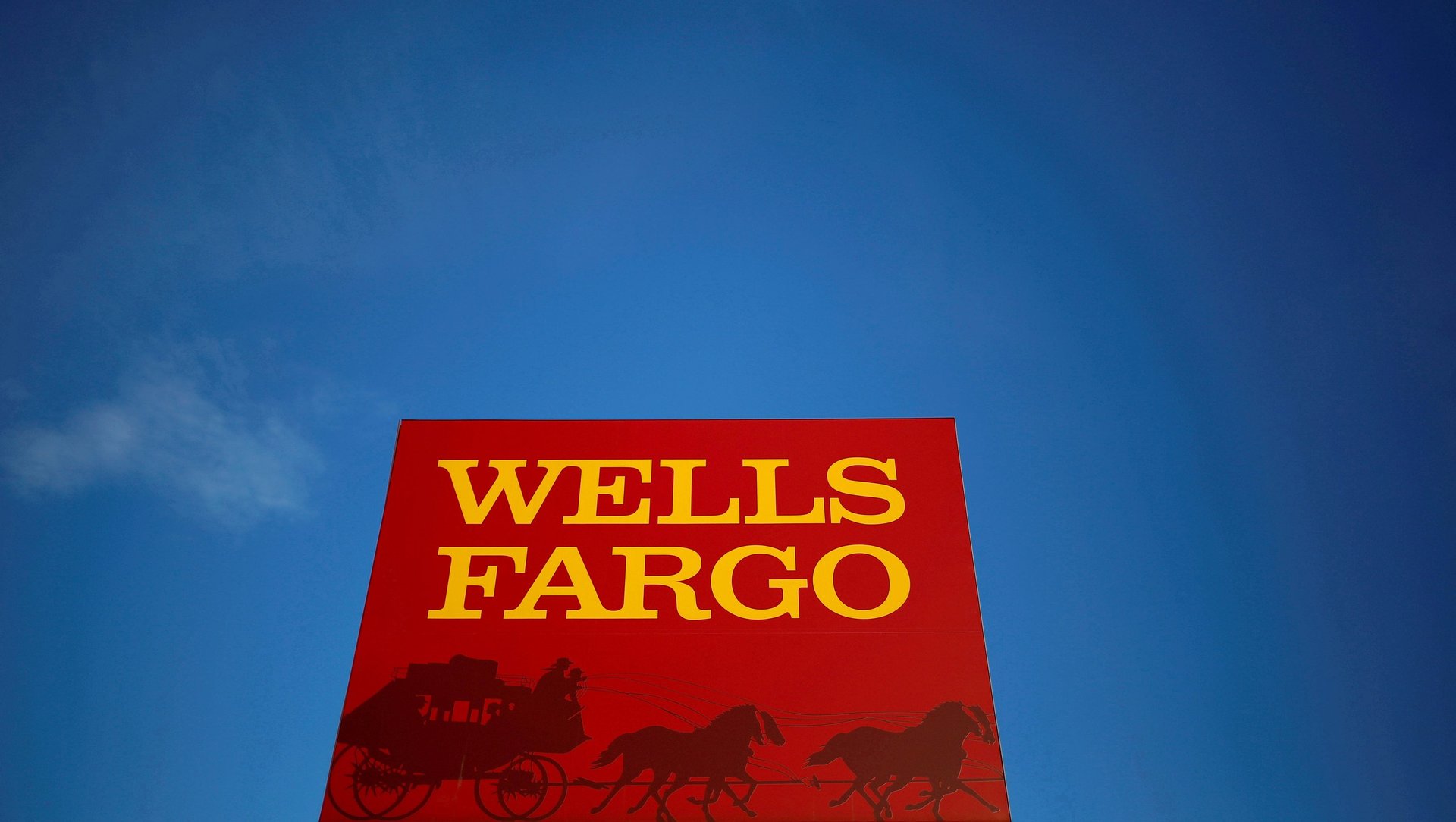Will Janet Yellen’s last act be a tough one to follow for new Fed chief Jerome Powell?
Jerome Powell is stepping into one of the most powerful jobs in the economics world as the head of the US Federal Reserve. And he’s taking over the central bank during shaky times: after a rapid sell-off last week, the S&P 500 was falling again today (Feb. 5).


Jerome Powell is stepping into one of the most powerful jobs in the economics world as the head of the US Federal Reserve. And he’s taking over the central bank during shaky times: after a rapid sell-off last week, the S&P 500 was falling again today (Feb. 5).
The Fed has two main roles: to ensure confidence in money, markets, and the US economy and—less visibly—to regulate American banks.
This may soon change. On Feb. 2, the Fed slapped Wells Fargo, the third-largest US bank, with a penalty that could cost the company $400 million in after-tax profits this year. (Still a fraction of Wells Fargo’s $3.4 billion tax-cut windfall.) The Fed is demanding that Wells Fargo fire four of its board members, while prohibiting the bank to grow any larger until sufficient changes have been made.
Janet Yellen’s last move as Fed chair was not only unprecedented, it was a reminder of the regulatory reach of the Fed.
Paying for consumer abuse
In 2016, Wells Fargo paid a $185-million fine as a penalty for opening millions of unauthorized, fake accounts, sticking unknowing costumers with extra fees. The CEO at the time, John Stumpf, was forced to face Congress and eventually resigned. Last quarter, the bank reported $3.25 billion in litigation fees “for a variety of matters, including mortgage-related regulatory investigations, sales practices, and other consumer-related matters.”
One of the bank’s biggest critics, senator Elizabeth Warren, the Massachusetts Democrat, has long been calling for regulatory action, meeting twice with Yellen to discuss the matter.
Trump’s choice for Fed chair, in many ways, is Yellen-lite. Powell, a longtime member of the Fed board of governors, has publicly supported Yellen’s policies and leadership. He’s never once cast a vote dissenting from one of her policy proposals.
But he does believe the Fed ought to go easier on banks.
It will be down to Powell
In his senate confirmation hearing, Powell argued there were “appropriate ways” to ease rules on banks, while also confirming that he no longer believed any one bank was too big to fail. The Senate banking committee voted 22-1 in favor of Powell, with Warren, who believes financial regulations need to be tougher, not easier, casting the lone “no.”
Now Powell’s stance on regulation will be truly tested. The Fed’s new supervisory chief, Randy Quarles, recused himself from all Fed business with Wells Fargo due to a family conflict of interest. That leaves the onus of decision-making largely to Powell.
Powell was the top Fed official overseeing negotiations (paywall) with Wells Fargo. He’s given no indication that he intends to walk back on the penalties imposed on the institution. The bank is to submit a plan (paywall) to the Fed within 60 days, while also filing an independent third-party review that should be wrapped up by the end of September.
Wells Fargo is optimistic the Fed’s penalties will be rolled back within a year.
While it’s unclear how Powell will proceed, he has support in an unlikely place: